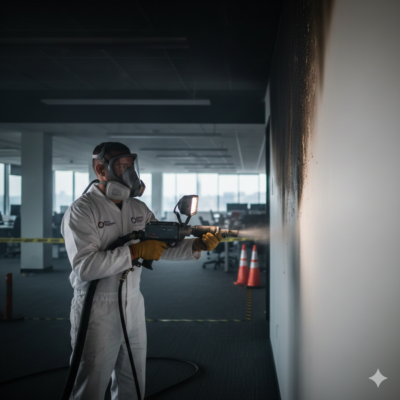The simple answer here is “yes”, but of course, there’s a lot more to this that you need to know as a business owner, especially if you’re trying to do what you can to boost your company’s reputation and make it as inclusive as possible to your community. So, you know that feeling when you’re excited to check out a new spot, but the second you get there, the entrance looks like it belongs in an obstacle course? Okay, maybe an obstacle course is a bit overkill, but it’s not as simple as it actually should be, like the bare minimum just doesn’t seem to be there?
For example, there’s the cracked pavement, random steps that feel like a mini mountain, and no ramp in sight. While sure, some of these might not seem like a big deal, for a lot of people, something like this is beyond annoying, and instead, it’s a full stop. Now, you really need to understand that accessibility starts before someone even touches the door handle, and if a business doesn’t get that right, it’s basically telling customers, “this isn’t for you.” That’s not something you want to do, right?
First Impressions aren’t Made Inside
Yeah, it’s best to just start here, so people don’t wait until they’re browsing the shelves or sitting in the waiting room to decide how they feel about a business. That judgment starts the second their foot hits the pavement. If someone’s tripping over cracks, swerving around holes, or struggling with a walker, wheelchair, or stroller just to get inside, they’re already unimpressed. Actually, it’s downright offensive too if you think about it, and if they physically can’t get in? Forget it. They’re heading straight to the competitor who thought ahead.
Ramps and Smooth Walkways aren’t Optional
Okay, while this technically depends on the country you live in, as some countries don’t put a major emphasis on accessibility, this shouldn’t immediately make you think that things like ramps, handrails, and flat walkways are just“extras.” They’re not, they’re the basics.
Wheelchair users need them. Parents with strollers love them. Plus, older customers with stiff knees appreciate them. Just think of it like this: accessibility doesn’t just make life easier, it makes people feel respected. Besides, when a business makes you feel respected before you’ve even stepped inside, that’s powerful.
Repairs Say More than Excuses
Here’s where a lot of places mess up: ignoring cracked sidewalks and uneven steps. It’s not just a tripping hazard, it’s a billboard that screams, “We don’t care.” Do you see the issue here? You really don’t want a bad look like that, and yeah, customers pick up on that feeling that you don’t care.
If there are things broken (or just lacking), they need to be fixed; it’s as simple as that. So, just hiring professionals for things like commercial concrete repair isn’t just about fixing the ground. Sure, that matters, of course, but it’s more about letting your customers know that you’re actually paying attention and you care about their comfort and safety. All businesses seriously need to do this.
Accessibility Creates Loyalty
Businesses love to talk about loyalty programs and reward cards, and yeah, those are great. But if you’re inclusive, that’s going to massively help too. Seriously, making people feel included speaks so much more, and again, people notice these things.










